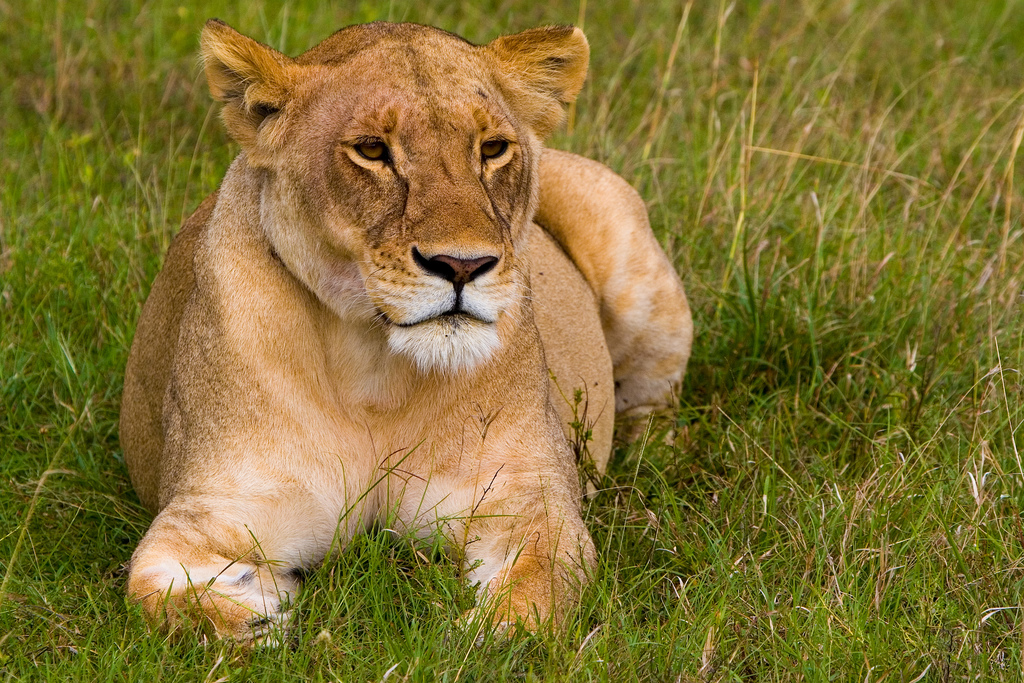This past weekend, the David Sheldrick Wildlife Trust in Kenya, received word that lions in the Maasai Mara National Reserve were collapsing. A veterinarian dispatched to the scene confirmed that the lions had been poisoned. As of today, the BBC reports that eight lions from the Marsh pride are being treated for insecticide poisoning, and two have died.
Two men have been charged with poisoning the Marsh pride lions. Reportedly, the men laced a cow carcass with insecticide, intentionally targeting the big cats that killed three of their cows. Poisoning lions is illegal, but not uncommon, in Kenya. In fact, says wildlife conservationist Paula Kahumbu, “poison is the number one cause of lion mortality.”
The high rate of poisoning is a result of ongoing conflict between lions and neighboring herdsmen. The two men facing trial are members of the Maasai tribe, a pastoralist people who hold their wealth in cattle and live on the land bordering the national reserve. Lions in the reserve attack cattle, threatening the Maasai’s livelihood. In turn, the herdsmen view the predators as a liability, poisoning the cats to protect their other cows.
If we want to protect lions and other endangered species, we must learn how to resolve such human-wildlife conflict. Property rights can help resolve conflict by turning liabilities—like lions who threaten cattle—into assets.
One example of how to accomplish this is the Ol Kinyei Conservancy, which borders the Maasai Mara National Reserve where the Marsh pride lions were poisoned. At Ol Kinyei, the Porini Camps safari company partnered with the Maasai tribe to set aside a section of their land to be managed as a private wildlife conservancy with a small safari camp.
Porini Camps leases the land directly from the tribe and pays them a percentage of tourism revenues. As they profit from wildlife as a tourist attraction, tribal herdsmen view Ol Kinyei’s lions as a source of income rather than as a threat to their livestock. As a result, there is greater tolerance for wildlife among the Maasai community, and wildlife populations, including lions, have flourished on Ol Kinyei’s private reserve.
By contrast, wildlife numbers are down on the neighboring Maasai Mara National Reserve. While it’s illegal to graze livestock on the national wildlife reserve, Maasai cattlemen have driven their livestock deep into the reserve during recent droughts, looking for forage and water, intensifying the conflict. The men who poisoned the Marsh pride lions acted illegally. However, when we understand the nature of the conflict, and the fact that these herdsmen have no other source of income, we can begin to understand their actions. In order to ensure the survival of wildlife, lions and other species must be considered an asset to the people who live with them.
Human-wildlife conflicts have led to the poisoning, poaching, and decimation of many species around the globe. It is easy for those of us who have no daily interaction with the animals to call for bans on hunting and for greater enforcement against poisoning and poaching, but these are generally ineffective in places where the livelihoods of local peoples are threatened by the wildlife we want to protect. With property rights, contracts, and the right incentives for conservation, as in the case of Ol Kinyei, wildlife populations become protected assets and are able to grow.




